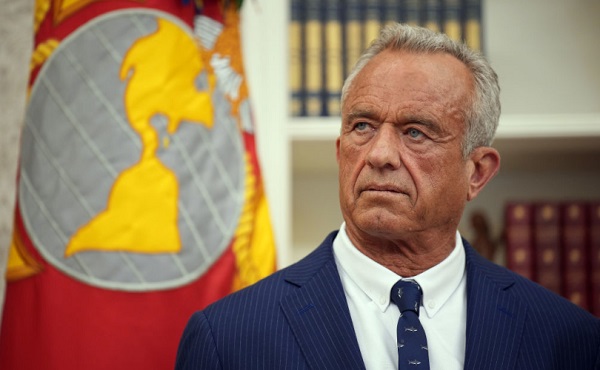Alberta
Alberta preparing to protect pro-family laws by invoking notwithstanding clause: leaked memo

From LifeSiteNews
Alberta Premier Danielle Smith plans to use the notwithstanding clause to protect parental notification, female sports, and prohibitions on gender transitions for minors.
Alberta is preparing to invoke the notwithstanding clause to enact pro-family laws that are under attack by LGBT activists.
According to an internal memo leaked to the Canadian Press, Alberta Premier Danielle Smith’s office plans to use the notwithstanding clause to override opposition to three laws that protect children from the LGBT agenda.
“As you are aware, the premier’s office has directed that legislation be developed for the fall legislative session to amend the following pieces of legislation to permit each to operate notwithstanding the Canadian Charter of Rights and Freedoms and the Alberta Bill of Rights,” the September 10 memo from Deputy Minister of Justice Malcolm Lavoie reads.
“This legislative initiative is highly sensitive and should be approached with the utmost confidentiality,” it continued.
According to the memo, the proposal will be presented to the cabinet on October 21.
The clause would be used to protect three pro-family laws that Alberta has enacted in the past months. The first mandates that parents are informed of any changes to their child’s name or gender in school.
The second, enacted at the beginning of September, ensures that women and girls are protected from competing against gender-confused men and boys in sporting competitions.
The third, and arguably most important, blocks irreversible “gender transitioning” surgeries and drugs like puberty blockers and hormones for minors.
The legislation was introduced after overwhelming evidence showed that persons who undergo so-called “gender transitioning” procedures are more likely to commit suicide than those who are not given such irreversible surgeries.
Meanwhile, a study on the side effects of “sex change” surgeries discovered that 81 percent of those who have undergone them in the past five years reported experiencing pain simply from normal movements in the weeks and months that followed, among many other negative side effects.
However, shortly after the legislation was introduced, an Alberta court justice granted a temporary injunction after outcry from LGBT activists. Alberta has since promised to continue the fight to enact the legislation.
If Smith uses the notwithstanding clause, her government can override the courts and enforce the pro-family laws regardless of previous court rulings.
The notwithstanding clause, embedded in section 33 of the Canadian Charter of Rights and Freedoms, allows provinces to temporarily override sections of the Charter and protect new laws from being scrapped by the courts.
Alberta’s move would be similar to Saskatchewan Premier Scott Moe invoking his government’s notwithstanding clause to protect pro-family legislation from the courts in 2023.
Alberta
Tell the Province what you think about 120 km/h speed limit on divided highways

Alberta’s government is engaging with Albertans on increasing speed limits on rural highways.
Starting Nov. 7, Albertans can share their views on modernizing speed limits on divided highways through an online survey running until Dec. 12. The survey will ask how Albertans view raising the speed limit by 10 km/h on various highways from 110 km/h to 120 km/h.
“Alberta’s government is investigating how to safely increase speed limits on divided highways, and if Albertans support increasing speed limits. We are investing more than $1.5 billion this year alone to improve highway safety and upgrade infrastructure across the province. We want Albertans to be able to drive the speed limit that the highways are designed for. Modern vehicles combined with public awareness mean we can explore higher speed limits.”
The survey will provide Albertans with the opportunity to provide input on which highways they would prioritize having a speed limit increase, their views on restricting commercial trucks from using the far-left lane on highways with three or more lanes and any other feedback that would improve driving experiences on provincial highways.
Following a review of the survey results, Alberta’s government plans to conduct a mini-trial of a 120 km/h speed limit to assess the impacts of higher speed limits on divided highways. The trial will include strong monitoring to assess driving behaviour.
Alberta’s government reminds motorists to slow down and drive to the conditions. Speed limits are set for ideal conditions. When roads are wet, icy or when there is reduced visibility, motorists should slow down.
Quick facts
- Alberta’s provincial highway network includes more than 64,000 lane kilometres of highways, about 11,700 lane kilometres of which are divided.
- The posted speed limits of Alberta’s divided highways range from 100 to 110 km/h, although the posted speed limits on segments passing through cities, towns and First Nation lands can be as low as 50 km/h due to factors such as signalized intersections, pedestrians and local access.
Related information
- The survey is available online.
Alberta
Alberta Announces Members of Class Size and Complexity Committee

A new Class Size and Complexity Cabinet Committee has been struck to address classroom challenges.
Taking action on class size and complexity
Classrooms in Alberta continue to grow and are becoming increasingly complex, and immediate action is needed to address these issues in the public education system. To meet these issues head on, the Class Size and Complexity Cabinet Committee has been created. The cabinet committee will help guide government policy and deploy resources to deal with class sizes and classroom complexity.
“We are committed to providing world-class education, and we’re building schools and funding education at a rate unprecedented in this province. This committee will help us address the concerns of teachers, parents and students around class sizes and complexity.”
Throughout November, Alberta’s government will continue work with school boards to collect data on class sizes and classroom composition. The cabinet committee will use this data to direct resources to the classrooms that need it the most. Starting in January, this data will be made available and released annually.
The Class Size and Complexity Cabinet Committee will be co-chaired by the Premier of Alberta and the Minister of Education and Childcare. It will also include non-voting members representing school boards, administrators and a teacher representative of the ATA. The committee will also hear from school boards, academic experts, teachers, educational assistants, complex needs specialists and parents to inform its decisions and guide this vital work.
“We heard teacher concerns, and we are providing solutions. The Class Size and Complexity Cabinet Committee will help us take immediate action and ensure teachers and students are given the support they need to succeed.”
In June 2025, Alberta’s government established the Aggression and Complexity in Schools Action Team to provide advice on addressing classroom complexity. The report has been received and will be released soon. Over the coming months, the cabinet committee will start rolling out solutions informed by the action team’s recommendations. In addition, the committee will guide the creation of a new inclusive education policy framework.
“The work of this committee will support teachers in responding to the growing complexity in our classrooms. We will ensure that the voices of the contributors to the initial work guide
solutions that truly improve the educational experience for students and the educators who serve them.”
“I appreciate the government’s recognition of the impact of classroom complexity and their commitment to working collaboratively for improvement. Supporting teachers ultimately improves classroom conditions and student outcomes.”
Using data collected, this cabinet committee will also guide Alberta’s government in executing its commitment to hire 3,000 new teachers and 1,500 new educational assistants over the next three years. They will also assist in identifying and prioritizing where new schools and modulars should be built, advancing the government’s commitment to invest $8.6 billion to build 130 new schools, and provide 109 modular classrooms in the growing communities that need them urgently.
Quick facts
- Members of the Class Size and Complexity Cabinet Committee include:
- Danielle Smith, Premier of Alberta
- Demetrios Nicolaides, Minister of Education and Childcare
- Jason Nixon, Minister of Assisted Living and Social Services
- Rick Wilson, Minister of Mental Health and Addiction
- Searle Turton, Minister of Child and Family Services
- Lynnette Anderson, chief superintendent, Edmonton Catholic Schools
- Nicole Buchanan, chair, Red Deer Public Schools
- Marilyn Dennis, former president of Alberta School Boards Association
- Mike McMann, superintendent, Fort Vermilion Schools and President, College of Alberta School Superintendents
- Joanne Pitman, chief superintendent, Calgary Board of Education
- Dr. Elissa Corsi, Alberta Teachers’ Association
- Only Cabinet members are voting members. Additional guests will be invited to attend and share their expertise at the discretion of the chairs.
- School boards will be required to submit data on Alberta classrooms by Nov. 24.
-

 Alberta2 days ago
Alberta2 days agoTell the Province what you think about 120 km/h speed limit on divided highways
-

 Energy17 hours ago
Energy17 hours agoThawing the freeze on oil and gas development in Treaty 8 territory
-

 Alberta2 days ago
Alberta2 days agoAlberta’s number of inactive wells trending downward
-

 National1 day ago
National1 day agoNew Canadian bill would punish those who deny residential indigenous schools deaths claims
-

 Business2 days ago
Business2 days agoBill Gates Gets Mugged By Reality
-

 Business17 hours ago
Business17 hours agoWhat Pelosi “earned” after 37 years in power will shock you
-

 Censorship Industrial Complex2 days ago
Censorship Industrial Complex2 days agoSchool Cannot Force Students To Use Preferred Pronouns, US Federal Court Rules
-

 Health1 day ago
Health1 day agoRFK Jr. urges global health authorities to remove mercury from all vaccines




